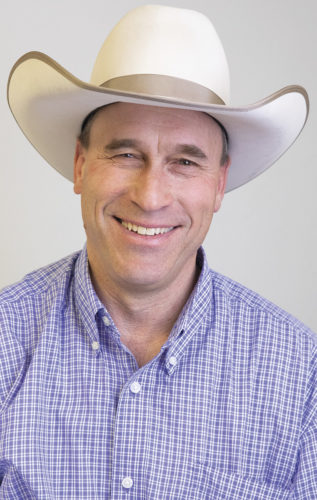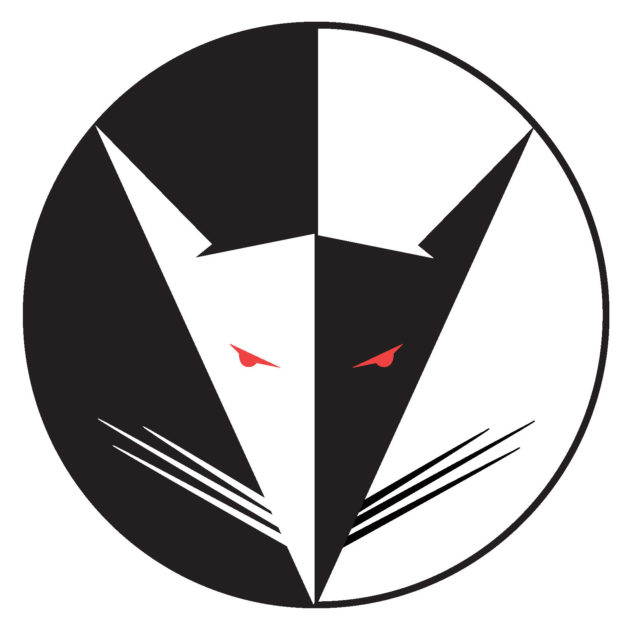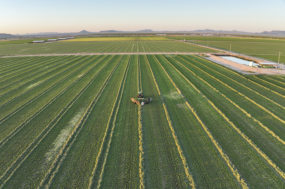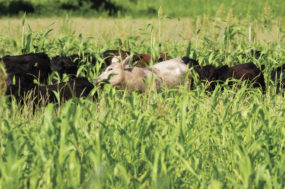January was brutally cold. My home country had been blessed with some much-needed moisture in the form of several December and January snowstorms, and winter didn’t slow down in February. I watched as several of my neighbors struggled through the early parts of their calving seasons, and I wanted none of what they were having. Several days of wind and snow would be followed by four-day stretches of subzero temperatures. I’d made a deal with Mother Nature. I’d delay the start of my calving season to the last week in February this year – at which point she, in return, would temper her alternating fitful rages of three-day blizzards and bitterly cold temperatures. One of us honored the deal.
The day after I returned home from the state high school basketball tournament was the day my first calf arrived. It was cold and there was a 2-inch blanket of snow on the ground, but I wasn’t worried; after all, we had a deal. Someone didn’t read the fine print. Winter still raged, and as the calendar marched on well into March, I still hadn’t seen a patch of bare ground. I can handle the necessity of checking heifers every couple of hours around the clock, but I shouldn’t have to do the same for the older cows. With constant snow and bitter cold, though, I dared not leave even the old trustworthy cows to their own devices. The deal that "Ma Na" – my pet name for Mother Nature – and I had was that I’d take care of the heifers and she’d watch over the cows. She, however, was too busy concocting ways to terrorize me to watch over the cow herd properly. Subsequently, I had to take care of her job and mine, all the while fighting her off with every bit of worn-out energy I could muster. It was like being blindfolded and single-handedly sword-fighting Genghis Khan with a stick. Somehow, I was holding my own, but insanity was closing in fast.
In the midst of my struggles, as I’d take a brief sit down on the couch in the wee hours of the night or morning to recharge for a few minutes, I’d catch an occasional glimpse on social media of my fellow cow folks and their own battles with the elements. I began to see a common and familiar theme, which I initially embraced, but as time and my own insight progressed began to annoy and even trouble me.
It was the idea, which has ever been popular among us farm and ranch folk, that we are supremely overworked and underappreciated, and that we are worthy – yet devoid of – high praise and noble sympathy, simply because we are agriculturists.
Now, don’t misunderstand me. There’s not a soul on earth who will more steadfastly defend those who valiantly clothe and feed the world. I think I’m one of those proud few. But to think that we deserve more or higher praise than any honest banker or cashier or mill worker or flight attendant or teacher or janitor or plumber or roofer or accountant or receptionist or, or, or … Well, I think that's unnecessary hubris. If I’m being completely honest, instead of expecting thanks for our labors, we should be offering it.
No matter how miserable or dire the circumstances, I rarely encounter a cowboy or farmer who is anything less than tenaciously proud of and grateful for the opportunities afforded him or her as a steward of God’s creations. And I think that’s an honorable stance and one to be admired. But I also believe we are lucky and blessed beyond compare. The abuse that the weather and the markets may heap upon us can rarely tip the love/hate scales to the side of enmity. That can probably not be said of most occupations.
I’m reminded of something I heard in a religion class I took in college. Believe it or not, I was only enrolled in the class because it was required for graduation. Yet, this one declaration – uttered by a nondescript religion professor in the middle of what I probably considered a dry, inane lecture – turned out to be perhaps the most impactful statement I absorbed in all my classes and semesters of higher education. The statement was this: "Love is its own reward."
It may not have meant much to me at the time, but it somehow stuck in some obscure recess in my shallow brain and has come to serve me well as I’ve fought through life’s many battles – both large and small – over the years. Much like my occupation, with its accompanying lifestyle, has taught me, I have been much better served as I’ve learned to appreciate honest, naïve and selfless service for what the act itself offers me, rather than withholding my happiness for some reciprocation. And, although the math doesn’t really add up, it miraculously works. Doing good begets good – to the "doer" as much as the "getter." The sooner we all figure that out, the sooner we’ll find our appreciation – whether we deserve it or not.











